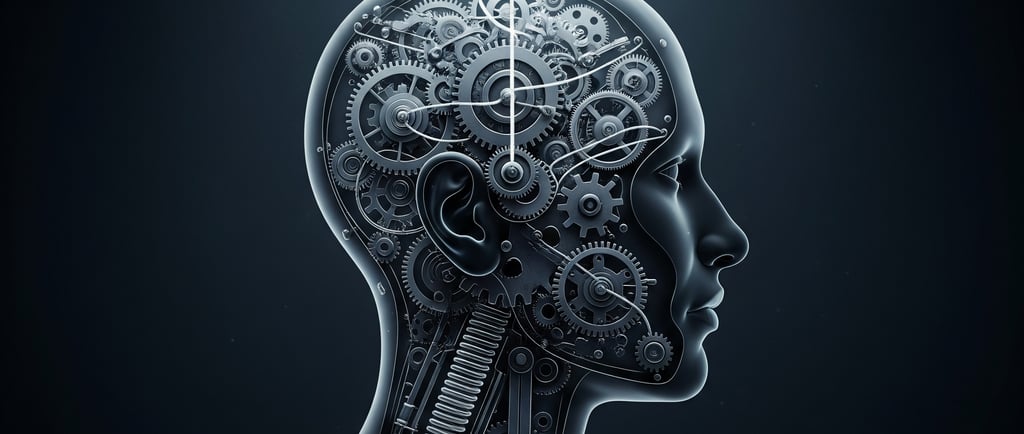What Do Neuroscientists Say About Free Will?
Neuroscience has revealed that our brains often make decisions before we become consciously aware of them. Famous experiments by Benjamin Libet in the 1980s showed that a subject’s brain activity predicting a movement occurred milliseconds before the person reported consciously choosing the action. More recent research using modern brain imaging has confirmed similar patterns. Neural activity can often anticipate a decision seconds before we become aware of it. In other words, what feels like a conscious choice might be our brain “going public” with a decision it already made.
NON-STOIC PHILOSOPHIES
7/27/20252 min read


Key takeaways from neuroscience:
Conscious thought may be more of a narrator than a controller.
Much of human behavior is influenced by unconscious processes (genetics, environment, habits).
Free will, at least in the absolute sense, may be more limited than we believe.
How Philosophy Interprets These Findings
Western philosophy has wrestled with the tension between determinism (the idea that all events are caused by prior events) and free will for over 2,000 years. Thinkers like Spinoza, Schopenhauer, and Nietzsche doubted the traditional concept of “libertarian free will”, arguing that human choices are shaped by causes beyond our control.
Modern philosophers often explore compatibilism — the view that freedom isn’t about escaping causation, but about acting in line with our desires and reasoning, even if those desires themselves are determined.
By teaming up with neuroscience, philosophy gains stronger evidence that the “self” is less of a ruler and more of an interpreter — which dramatically reshapes how we think about ethics, responsibility, and personal growth.
Why the "Illusion of Free Will" Is Good News
At first glance, losing free will might feel pessimistic. But in fact, it carries several profound benefits:
1. Greater Empathy for Others
If people are deeply shaped by brain chemistry, genetics, and upbringing, it makes sense to respond with more compassion. Instead of moralizing, we can ask: What shaped this person’s behavior? How can we change the causes? This perspective could lead to less blame and more understanding.
2. Fairer Justice Systems
Understanding the limits of free will challenges harsh, punitive justice models. If someone commits a crime due to factors largely outside their control, rehabilitation and prevention become more rational than retribution. Countries experimenting with rehabilitative models of justice are already seeing lower crime rates.
3. Reduced Anxiety and Guilt
If every decision you make is influenced by a complex web of causes, beating yourself up for a “bad choice” becomes less useful. This can actually reduce guilt and anxiety, encouraging individuals to focus on learning, adapting, and changing conditions rather than obsessing over moral failure.
4. Better Personal Development
Recognizing that our willpower is limited doesn't mean we’re powerless. It highlights the importance of structuring environments, habits, and social influences to shape better outcomes. Change comes less from sheer “free willpower” and more from smart systems and consistent practice.
Neuroscience + Philosophy = A New Human Story
The combined insights of neuroscience and philosophy reveal a human story more complex than “I chose this freely.” We are deeply interconnected beings, shaped by biology, history, culture, and environment.
And this story may be far more empowering. Instead of clinging to an outdated notion of absolute free will, we can embrace reality: we are works in progress, influenced but also capable of being re-shaped through education, compassion, and collective effort.
Final Thoughts
The idea that free will is an illusion may feel unsettling at first glance. But when viewed through the lens of science and philosophy together, it becomes liberating. By reducing the weight of blame, encouraging compassion, and shifting attention to systems change, this insight pushes humanity toward a more thoughtful, ethical future.
So while it may be true that our conscious mind is not the master we thought it was, perhaps that’s exactly the kind of humility we need right now.
Waste no more time arguing about what a good man should be. Be one - Marcus Aurelius
We suffer more often in imagination than in reality - Seneca
Wealth consists not in having great possessions, but in having few wants - Epictetus
